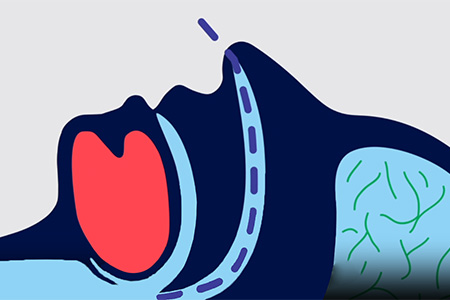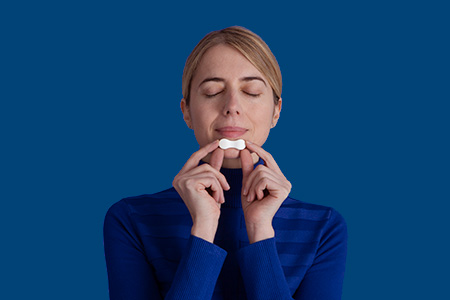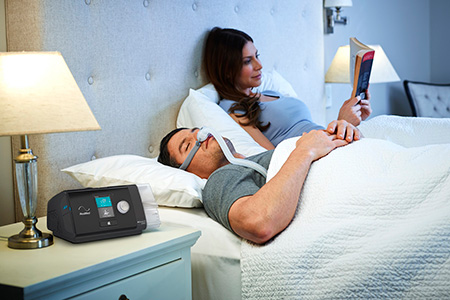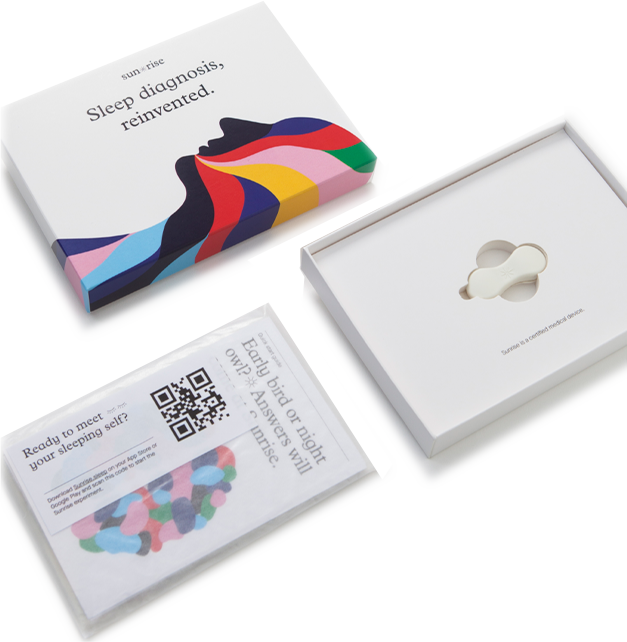What is Sleep Apnea?
Sleep apnea is a sleep disorder characterized by interrupted breathing during sleep. When someone has sleep apnea, their breathing may become shallow or even stop completely, leading to a temporary lack of oxygen to the brain and body. This can cause individuals to wake up frequently throughout the night, resulting in poor sleep quality.
Sleep Apnea Medical Facts
Sleep apnea is a pause in breathing for over 10 seconds. This may be considered normal when it does not exceed 4 events per hour.
Levels of severity
Mild - occurs 4 to 14 times per hour
Moderate - occurs 15 to 30 times per hour
Severe - occurs more than 30 times per hour
The two main types of sleep apnea
Obstructive sleep apnea is caused by a blockage in the airway, typically due to relaxed throat muscles or excess tissue in the throat.
Central sleep apnea, on the other hand, occurs when the brain fails to send the proper signals to the muscles that control breathing.

Symptoms of Sleep Apnea
Some common symptoms of sleep apnea include:
- Loud snoring
- Gasping or choking during sleep
- Daytime sleepiness
- Headaches upon waking up
- Memory problems and difficulty concentrating
- Irritability and impatience
- Reduced intellectual performance
However, not everyone who has sleep apnea will experience all of these symptoms, and some may not even realise that they have a sleep disorder.
Diagnosing Sleep Apnea
Diagnosis of sleep apnea typically involves a sleep study, which can be done in a sleep center or at home with the use of a portable sleep monitoring device. During the sleep study, various factors are measured, including heart rate, breathing patterns, and oxygen levels in the blood.
The Sunrise Sleep Testing Device offers comprehensive reporting across all vital statistics to ensure you and your health professionals have a clear picture of your sleep health and are able to treat accordingly. Please note for commercial drivers and operators, higher level testing which requires a GP referral and clinic attendance may be required prior to final treatment.


Treating Sleep Apnea
If a diagnosis of sleep apnea is confirmed, treatment options may include continuous positive airway pressure (CPAP) therapy, oral appliances, or in some cases, surgery. CPAP therapy is considered the premium option and is a drug-free option involves wearing a mask over the nose and/or mouth while sleeping, which delivers a constant flow of air to keep the airway open.
Oral appliances provided through dental clinics and known as mandibular devices, are designed to reposition the jaw and tongue to keep the airway open.
The third option which is less common, but considered in more severe cases is the option of surgery which may involve removing excess tissue from the throat or correcting structural abnormalities.
Are You Suffering from Sleep Apnea
Sleep apnea is a common sleep disorder that can have a significant impact on an individual's overall health and quality of life. If you suspect that you may have sleep apnea, we encourage you to seek professional diagnosis and treatment. For more information see our page on Sleep Apnea Associated Health Risks.
Sleep Test Australia is here to provide you with the support and resources you need to get a good night's sleep.

:


